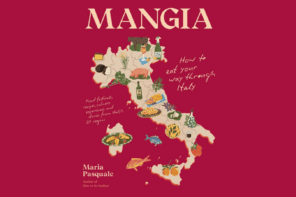While those intimate with the sea know just how chaotic it can get during storms, it is also the most peaceful setting one could find when the waters are calm. This is why the sea has often been associated with deep contemplation. This calm is also part of why Terry Birles can deeply think about his experience and expertise and how it could best help those with a burgeoning maritime interest.
As one of the most sought-after maritime advisors to Fortune 500 companies and ultra-high-net-worth individuals, Birles has helped shape how the elite experience the sea, going between tradition and technological advancement in an industry set to surpass $11 billion by year’s end.
How to Sail the Cross-Cultural Waters
Terry Birles is more than just a consultant—he’s become a cultural translator in the widening industry. Specializing in helping corporations adapt to international markets, Birles has developed a particular approach to maritime advisory.
“When entering new markets, particularly in regions with distinct cultural practices, the approach can’t simply be transactional,” Terry Birles notes, “One needs outside-the-box thinking to conquer new markets for businesses.” This philosophy has attracted clients from shipping conglomerates to energy giants seeking to expand their maritime operations.
With an estimated $90 trillion in wealth expected to transfer from earlier generations to the younger ones over the next two decades, Birles has put himself in the middle of generational change and maritime tradition.
“The industry is seeing a transformation in its client base,” Birles observes “Younger owners bring different expectations. They want sustainability alongside luxury, technology alongside craftsmanship. Meeting these demands requires understanding not just vessels but values.”
Combining Sustainability and Innovation While At Sea
In an industry known for leaving an undesirable environmental footprint, Terry Birles has become an advocate for sustainable practices, focusing on what he calls “responsible luxury.”
“The superyacht industry is looking to have a transformative year,” Terry Birles references the surge in eco-conscious designs emerging in 2025. “We’re seeing everything from hybrid propulsion systems to solar-powered solutions and advanced waste management systems. The wealthy still want exceptional experiences, but increasingly, they want those experiences to align with environmental consciousness.”
Terry Birles’s approach combines traditional craftsmanship with advanced solutions, particularly in the classic yacht restoration sector. “Our approach involves a delicate balance between preserving historical integrity and meeting contemporary maritime standards,” Birles shares. “When restoring classic yachts, we often encounter challenges such as sourcing authentic materials or adapting modern safety features without compromising the vessel’s historic essence. It’s a complex but rewarding process.”
The Shape Of Maritime Luxury In The Coming Years
Terry Birles reveals that luxury experiences at sea will continue to evolve rather than diminish. The European market, particularly in areas like the Mediterranean, has remained resilient over the years, accounting for approximately 30 percent of the global yacht maintenance and refit market in 2024, valued at $5.85 billion.
“The European market has always been a hub for classic yachts,” Birles observes, “we’re seeing increased demand not just from private owners but also from charter companies looking to offer unique, luxury experiences to their clients.”
This continuing evolution is not exclusive to the vessels, as it encompasses the entire maritime experience. Smart yacht technology, particularly those incorporating automation, artificial intelligence (AI,) and Internet of Things systems, transforms how the wealthy interact with their vessels. In this aspect, Birles has been particularly instrumental in helping fledgling seagoers deal with their technological waters, so to speak, ensuring that such technological advancements enhance the experience rather than overwhelm the people using it.
“As more individuals recognize the value of these floating pieces of history, we expect to see increased investment in restoration projects,” Birles reflects “This not only preserves maritime heritage but also contributes to the sustainability of the yachting industry by extending the lifespan of existing vessels.”
For Terry Birles, the future of maritime luxury is not just about bigger or more technologically advanced vessels. It is more about creating meaningful connections to maritime tradition while embracing change. “At sea,” he says, quoting one of his favorite maritime sayings, “I learned how little a person needs, not how much.”





